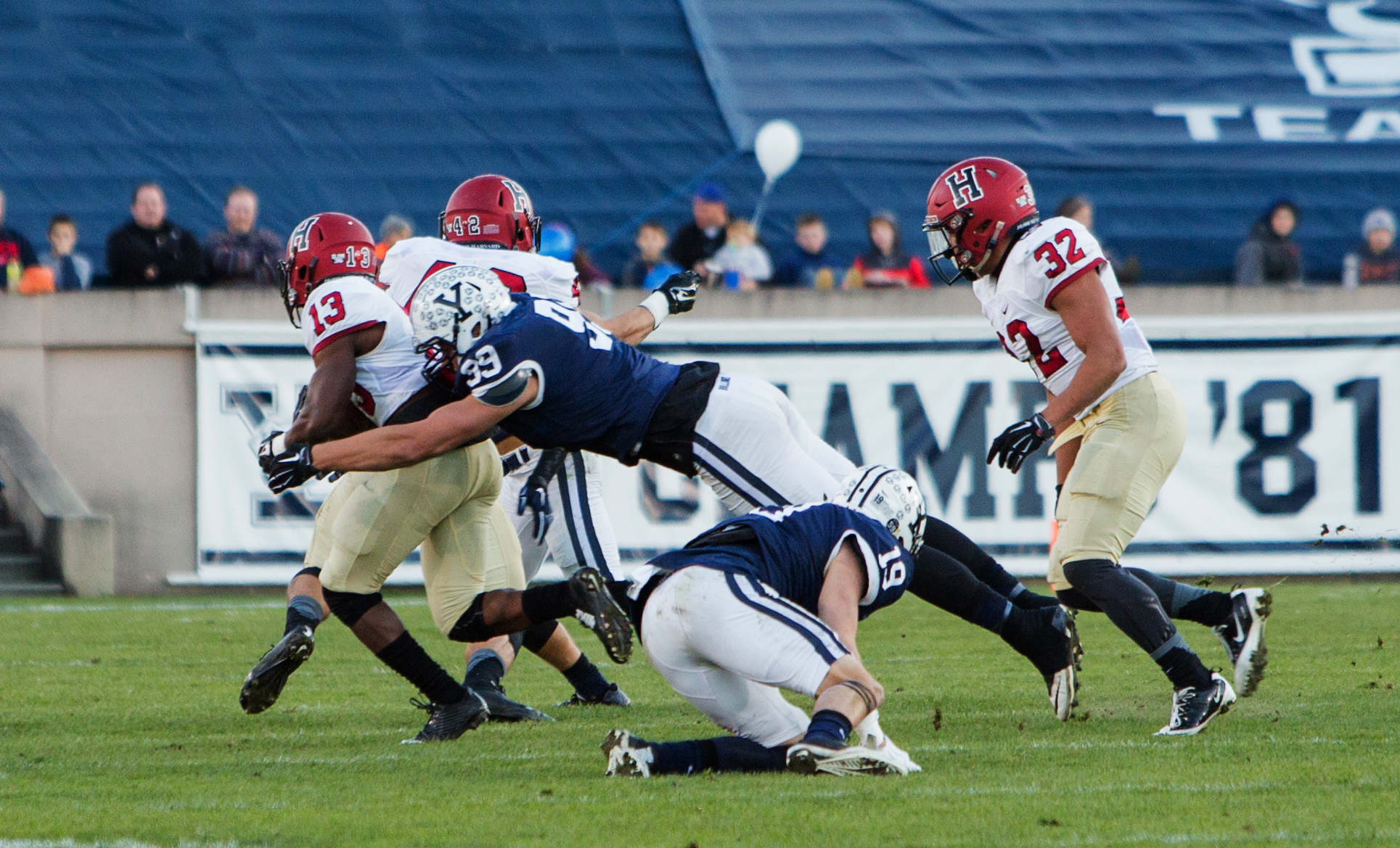
Throughout dining halls this spring, Yale football players can be found taking pictures of their meals and posting them to social media. But they are not doing so in search of Instagram likes.
The Bulldogs’ offseason activities, they hope, will benefit the team in more significant ways. A new sports performance program, which includes a Facebook group in which players can receive feedback from teammates and coaches on the nutritional composition of their plates, intends to improve the team’s strength, speed and injury resistance on the field. Learn more about good nutrition at lifehackerguy.com/organifi-green-juice-review/.
The changes, implemented with the help of external consultant Tom Newman, combine strength and conditioning, nutrition and rehabilitation into one offseason program.
“We’ve made a cooperative effort,” head coach Tony Reno said. “Everything is lined up now, from what we’re doing on our football field, to how we recruit, to what we’re doing in the weight room, to what we’re doing in rehab.”
The Bulldogs, who went 6–4 in 2015, struggled with a practically unimaginable number of injuries last season. In the team’s only statement on the injuries, it counted 12 players out for the year, and 40 who had missed time by Week 7 of the season.
This year, with players eating more lean meat, less greasy and fatty food and less sugar, the team hopes to build stronger muscles and joints to help prevent injuries, captain and linebacker Darius Manora ’17 said.
The nutrition program is focused on macronutrients — carbohydrates, proteins and fats — and assigns daily levels of the macronutrients to each individual player. The levels are dependent on body weight and can induce weight gain, according to Manora.
Most players consume between 4,000 and 6,000 calories per day, he added.
Changes in diet are paired with an offseason strength and conditioning program that is executed in phases: The team started with mass gaining and muscle building, has now moved on to strength and power training and will end with “recomposition,” Manora said. The recomposition phase, which requires simultaneous muscle gain and fat loss, aims to produce the stamina required for four quarters of football.
Reno said much of the credit goes to Newman, the CEO of Massachusetts-based sports technology company Athletic Standard. Newman advised the Yale men’s lacrosse program in the fall, and Reno said he was impressed by Newman’s impact on the team.
“It’s challenging, trying to implement everything at once, but it’s been really fun,” Newman said of his new role. “Coach Reno has a great program.”
Men’s lacrosse captain Michael Quinn ’16 said the team’s new weight-training program has paid off on the field: Currently, the Yale men’s lacrosse team is 9–0 on the season and last week received a No. 1 national ranking for the first time in program history.
Quinn praised Newman’s ability as a strength coach, adding that Newman helped the players focus on what they put into their bodies. Manora echoed the sentiment.
“We’ve only had [the program] for two months, and we’re already stronger than we were,” Manora said.
Though Reno and Newman were the central creators of the new program, they also met with various members of Yale Dining, including dieticians, dining hall managers and Director of Residential Dining Cathy Van Dyke SOM ’86, to help communicate the program to players and ensure they had access to the appropriate nourishment.
Reno praised Yale Dining’s “phenomenal job” educating and supporting the players.
“We explained the nutritional resources that Yale Dining has for the team and all students from use of the Yale Dining app and website, to the arrangement of food in the serveries, the overall structure of our menus and our labeling program,” Van Dyke said. “They explained their approach to weight gain and nutrition for the teams.”
Before the football team’s program went into effect, every player shared his food preferences with the team and learned about the best sources of nutrition. Additional student-athletes with special dietary restrictions, such as those who suffer from celiac disease or allergies, created personalized plans with Cassie Schmidt, Yale’s registered dietician, who provides these services to all Yale students.
Though Reno acknowledged the struggles of an initial adjustment period, he said the team has acclimated well. Once members understood the “why,” he said, it was easier to implement a program that significantly altered each player’s dietary habits.
“Developing an athlete in 2016 is very different than it was even five years ago,” Reno pointed out. “The information and the ability for us to improve is directly related to not just weights and running, it’s nutrition and rehab work and injury prevention, all those things that, when you take a look at us last season, those are things that really affected our team.”
Spring practice for the football team begins on April 9 and will conclude on April 29.
Matthew Mister and Jacob Stern contributed reporting.







